Intro
Discover the 5 key liver function tests, including ALT, AST, and bilirubin, to diagnose liver health issues, liver damage, and liver disease, ensuring timely medical intervention and effective treatment.
Liver function tests are a crucial part of diagnosing and monitoring various liver conditions, including liver disease, liver damage, and liver cancer. These tests help healthcare professionals assess the liver's ability to perform its vital functions, such as filtering toxins, producing bile, and regulating blood sugar levels. In this article, we will delve into the world of liver function tests, exploring their importance, types, and interpretation.
The liver is a vital organ that plays a central role in maintaining overall health. It is responsible for filtering toxins, producing bile, regulating blood sugar levels, and storing essential nutrients. Liver damage or disease can have severe consequences, including liver failure, cirrhosis, and even liver cancer. Therefore, it is essential to monitor liver health regularly, and liver function tests are an effective way to do so. These tests can help identify liver problems early on, allowing for prompt treatment and preventing long-term damage.
Liver function tests are typically performed on a blood sample, which is analyzed for various enzymes, proteins, and other substances that are produced or cleared by the liver. These tests can provide valuable information about liver health, including the presence of liver damage, inflammation, or disease. There are several types of liver function tests, each measuring different aspects of liver function. Some of the most common liver function tests include alanine transaminase (ALT), aspartate transaminase (AST), alkaline phosphatase (ALP), gamma-glutamyl transferase (GGT), and total bilirubin.
Liver Function Test Types
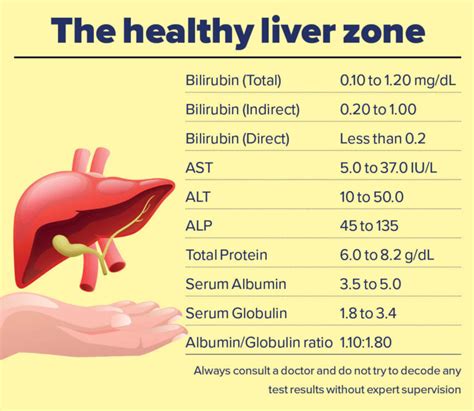
There are several types of liver function tests, each measuring different aspects of liver function. These tests can be broadly categorized into two main groups: liver enzymes and liver proteins. Liver enzymes, such as ALT, AST, and GGT, are produced by liver cells and released into the bloodstream when liver damage occurs. Liver proteins, such as albumin and globulin, are produced by the liver and play a crucial role in maintaining blood volume and transporting nutrients.
Liver Enzymes
Liver enzymes are a group of tests that measure the levels of various enzymes produced by the liver. These enzymes are released into the bloodstream when liver damage occurs, making them a useful indicator of liver health. Some of the most common liver enzymes include: * Alanine transaminase (ALT): This enzyme is produced by liver cells and is released into the bloodstream when liver damage occurs. * Aspartate transaminase (AST): This enzyme is produced by liver cells and is released into the bloodstream when liver damage occurs. * Alkaline phosphatase (ALP): This enzyme is produced by the liver and bile ducts and is involved in the breakdown of proteins. * Gamma-glutamyl transferase (GGT): This enzyme is produced by the liver and is involved in the breakdown of amino acids.Liver Protein Tests
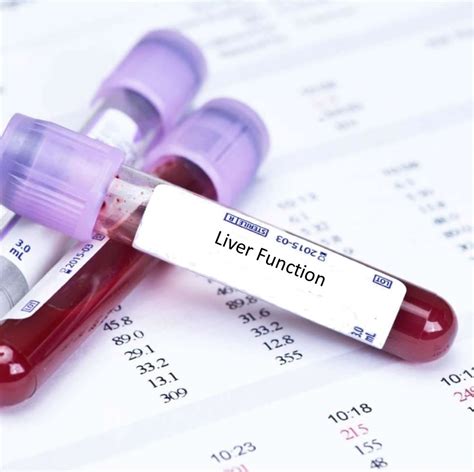
Liver protein tests are a group of tests that measure the levels of various proteins produced by the liver. These proteins play a crucial role in maintaining blood volume, transporting nutrients, and regulating blood clotting. Some of the most common liver protein tests include:
- Albumin: This protein is produced by the liver and plays a crucial role in maintaining blood volume and transporting nutrients.
- Globulin: This protein is produced by the liver and plays a crucial role in transporting nutrients and regulating blood clotting.
- Total bilirubin: This test measures the levels of bilirubin, a yellow pigment produced by the breakdown of red blood cells.
Interpreting Liver Function Test Results
Interpreting liver function test results can be complex, as abnormal results can indicate a range of liver conditions. It is essential to consult a healthcare professional to determine the underlying cause of abnormal results. Some common interpretations of liver function test results include: * Elevated liver enzymes: This can indicate liver damage or inflammation, which can be caused by a range of conditions, including viral hepatitis, alcoholic liver disease, and non-alcoholic fatty liver disease. * Low albumin levels: This can indicate liver damage or disease, which can lead to a range of complications, including edema, ascites, and coagulopathy. * Elevated total bilirubin: This can indicate liver damage or disease, which can lead to a range of complications, including jaundice, kernicterus, and liver failure.Liver Function Test Preparation
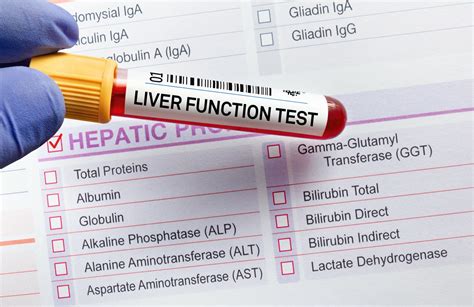
Preparing for liver function tests is relatively straightforward. Most liver function tests require a blood sample, which is typically drawn from a vein in the arm. It is essential to follow any instructions provided by the healthcare professional, including:
- Fasting: Some liver function tests require fasting, which means avoiding food and drink for a specified period before the test.
- Medications: Certain medications can affect liver function test results, so it is essential to inform the healthcare professional about any medications being taken.
- Lifestyle modifications: Certain lifestyle modifications, such as avoiding alcohol and maintaining a healthy weight, can help improve liver health and reduce the risk of liver disease.
Liver Function Test Risks and Complications
Liver function tests are generally safe and well-tolerated. However, as with any medical test, there are some risks and complications to be aware of, including: * Bleeding: There is a small risk of bleeding or bruising at the needle site. * Infection: There is a small risk of infection at the needle site. * Allergic reactions: Some people may experience an allergic reaction to the needle or other equipment used during the test.Liver Disease Prevention
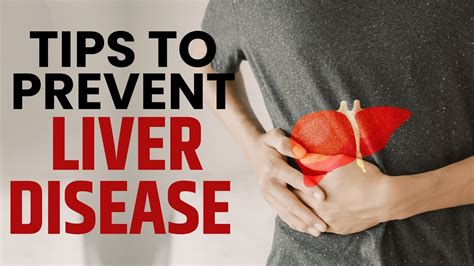
Preventing liver disease is essential for maintaining liver health and reducing the risk of liver-related complications. Some ways to prevent liver disease include:
- Avoiding alcohol: Excessive alcohol consumption can cause liver damage and increase the risk of liver disease.
- Maintaining a healthy weight: Being overweight or obese can increase the risk of non-alcoholic fatty liver disease.
- Getting vaccinated: Vaccinations against hepatitis A and B can help prevent liver disease.
- Practicing safe sex: Practicing safe sex can help prevent the transmission of hepatitis B and other liver diseases.
Liver Health Maintenance
Maintaining liver health is essential for overall health and well-being. Some ways to maintain liver health include: * Eating a healthy diet: A healthy diet rich in fruits, vegetables, and whole grains can help support liver health. * Staying hydrated: Drinking plenty of water can help flush toxins from the body and support liver function. * Avoiding toxins: Avoiding exposure to toxins, such as pesticides and heavy metals, can help reduce the risk of liver damage.Liver Function Test FAQs
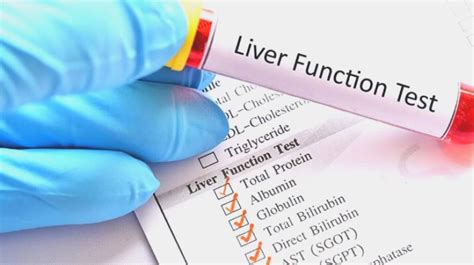
What is the purpose of liver function tests?
+Liver function tests are used to assess liver health and diagnose liver conditions, such as liver disease, liver damage, and liver cancer.
What are the most common liver function tests?
+The most common liver function tests include alanine transaminase (ALT), aspartate transaminase (AST), alkaline phosphatase (ALP), gamma-glutamyl transferase (GGT), and total bilirubin.
How are liver function tests performed?
+Liver function tests are typically performed on a blood sample, which is analyzed for various enzymes, proteins, and other substances that are produced or cleared by the liver.
In summary, liver function tests are an essential tool for diagnosing and monitoring liver conditions. By understanding the different types of liver function tests, their interpretation, and preparation, individuals can take an active role in maintaining their liver health. Remember to consult a healthcare professional if you have any concerns about your liver health or if you are experiencing any symptoms of liver disease. Share this article with others to help spread awareness about the importance of liver health and liver function tests.
